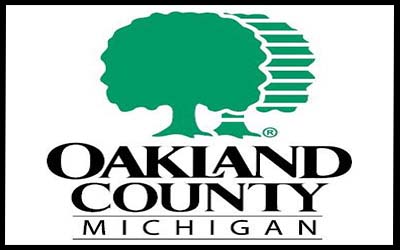
Whitmer Makes Appointments to Boards and Commissions

FOR IMMEDIATE RELEASE May 19, 2021 Contact: [email protected]
Governor Whitmer Makes Appointments to Boards and Commissions
LANSING, Mich. — Today, Governor Gretchen Whitmer announced the following appointments to the Michigan Domestic and Sexual Violence Prevention and Treatment Board, Michigan Historical Commission, Manufactured Housing Commission, Michigan State Waterways Commission, and the Michigan Interagency Council on Homelessness.
Michigan Domestic and Sexual Violence Prevention and Treatment Board
NiCole T. Buchanan, Ph.D., of Okemos, is a psychology professor at Michigan State University. She serves on MSU’s Relationship Violence and Sexual Misconduct Advisory workgroup and holds a Ph.D. in Clinical-Community Psychology from the University of Illinois at Urbana-Champaign. Dr. Buchanan is appointed for a term commencing May 19, 2021 and expiring December 4, 2023. She succeeds Sue Snyder whose term expired December 4, 2020.
The Michigan Domestic and Sexual Violence Prevention and Treatment Board coordinates and monitors programs and services for the prevention of domestic and sexual violence and the treatment of victims of domestic and sexual violence. The Board administers grants awarded under the Violence Against Women Act, the Family Violence Prevention and Services Act, and other governmental and non-governmental grants.
This appointment is subject to the advice and consent of the Senate.
Michigan Historical Commission
Laura Ashlee, of Okemos, is recently retired from the Michigan State Historic Preservation Office where she served as the certified local government coordinator, historian and communications liaison, and various other positions over 30 years. She holds a Bachelor of Arts in Humanities and Master of Arts in American Studies from Michigan State University. Ms. Ashlee is reappointed for a term commencing May 22, 2021 and expiring May 21, 2025.
Eric Hemenway, of Harbor Springs, is the director of archives and records and a member of the Little Traverse Bay Bands of Odawa Indians. He also serves as a consulting scholar for the American Philosophical Society Center for Native American and Indigenous Research. Mr. Hemenway is reappointed for a term commencing May 22, 2021 and expiring May 21, 2025.
The Michigan Historical Commission was established in 1913 and advises the director of the Michigan Department of Natural Resources on the museum, archival, and other programs of the Michigan Historical Center.
These appointments are subject to the advice and consent of the Senate.
Manufactured Housing Commission
Holly Hook, of Swartz Creek, is the co-founder of the Michigan Mobile Home Residents for Affordable Housing. She is also an independent author and publisher and holds an associate’s degree from Mott Community College. Ms. Hook is appointed to represent an organization whose membership consists of mobile home residents for a term commencing May 19, 2021 and expiring May 9, 2024. She succeeds Glenna Adams whose term expired May 9, 2021.
Jason M. Reed, of Grawn, is a union organizer with the Michigan Regional Council of Carpenters. He is a journeyman carpenter and attended the Michigan Regional Council of Carpenters Joint Apprenticeship Training Fund. Mr. Reed is appointed to represent organized labor for a term commencing May 19, 2021 and expiring May 9, 2024. He succeeds Bryan Davis whose term expired May 9, 2021.
The Manufactured Housing Commission is responsible for establishing uniform policies relating to all phases of manufactured housing, business, manufactured housing parks, and seasonal manufactured housing parks. The Commission has the legal authority to approve local governmental ordinances which would regulate manufactured housing, grant variances to the Manufactured Housing Commission Rules, approve licenses for manufactured home installer/servicers and retailers, and impose penalties on persons who have violated the Mobile Home Commission Act or Rules.
These appointments are subject to the advice and consent of the Senate.
Michigan State Waterways Commission
Fred Sitkins, of Traverse City, is the executive director of the Inland Seas Education Association. He holds a Bachelor of Science in Elementary Education from Western Michigan University and a Master of Arts in Educational Administration from Central Michigan University. Mr. Sitkins is appointed to represent the general public for a term commencing May 19, 2021 and expiring September 18, 2021. He succeeds the late Dennis Nickels.
The Michigan State Waterways Commission is responsible for the acquisition, construction, and maintenance of recreational harbors, channels, docking and launching facilities, and administration of commercial docks in the Straits of Mackinac.
This appointment is subject to the advice and consent of the Senate.
Michigan Interagency Council on Homelessness
Sarah Goad, of Okemos, is the manager of foster care, guardianship, and
Erika Hoover, of White Cloud, is the women veterans and special
The Michigan Interagency Council on Homelessness was designed to develop, adopt and update a 10-year plan to end homelessness. The 10-year plan shall include evidence-based improvements to programs and policies that will ensure services and housing are provided in an efficient, cost-effective, and productive manner. The plan shall be coordinated and tailored with the Federal Strategic Plan, “Opening Doors,” to meet the needs of this state’s homeless population.
These appointments are not subject to the advice and consent of the Senate. |




 According to
According to 
 “Much like the emerald ash borer – which spread across the state in the early 2000s, killing many of Michigan’s 700 million ash trees – invasive oak wilt, beech bark disease and hemlock woolly adelgid are threatening tree species that are critical components of our forests and landscapes,” said Robin Rosenbaum, Michigan Department of Agriculture and Rural Development Plant Health Section manager.
“Much like the emerald ash borer – which spread across the state in the early 2000s, killing many of Michigan’s 700 million ash trees – invasive oak wilt, beech bark disease and hemlock woolly adelgid are threatening tree species that are critical components of our forests and landscapes,” said Robin Rosenbaum, Michigan Department of Agriculture and Rural Development Plant Health Section manager.

 In
In 

